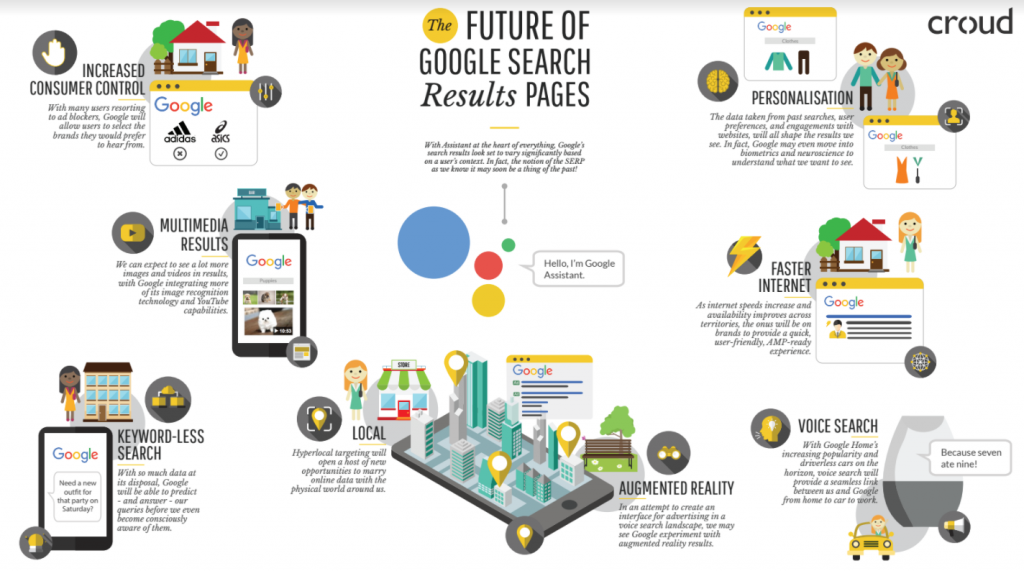Recently, we took a nostalgic, infographic-based look back at the history of Google search results pages.
In the past 20 years, Google has gone from a university project called Backrub to a global powerhouse that continues to shape how we search for, and discover, new information.
And yet, these are still early days for Google. In fact, the rate of change is only increasing, with driverless cars and augmented reality on the horizon.
Some of Google's core business focuses, like hyperlocal targeting and personalization, remain largely untapped opportunities and, with heightening competition from Apple, Amazon, and Facebook, the pace of progress will continue to accelerate.
In 2017 alone, for example, we are about to see an ad-blocker built into Chrome, a mobile-first index, and the increased uptake of voice search.
Google defines itself as "machine-learning first" in its approach, so we are entering an era of unprecedented – and mildly unpredictable – possibilities. If Google can integrate its Assistant software into our everyday lives, the humble search results page as we know it may soon be a thing of the past.
In our latest infographic, we have looked into a future where context will define the form and content of the search results pages we see.
You can view a high-resolution version of the image by clicking on the image below.

Infographic created by Clark Boyd, VP Strategy at Croud, and graphic designer Chelsea Herbert. Click here to read the blog post by Croud on The Future of Google Search Results Pages.
Clark Boyd is VP Strategy at Croud, a global digital performance agency, and a contributor to Search Engine Watch.
Get top insights and news from our search experts.
Related readingHappy Easter, Search Engine Watch readers! In honour of the season, we have put together a light-hearted search trivia quiz to test your knowledge.
Michael Bertini, Online Marketing Consultant and Search Strategist at iQuanti, told Search Engine Watch why he thinks that Google has gone off half-cocked with Posts, and why marketers would be better off expending their energies elsewhere.
Google has announced that "Similar items" is now available globally in image search on mobile and in its Android app. Similar items ... read more
After a tentative launch in October 2016, Google has released its Fact Check feature in search results worldwide. How does it work, and what can you do to get your site included?
Source: What will the future of Google search results pages look like?
No comments:
Post a Comment